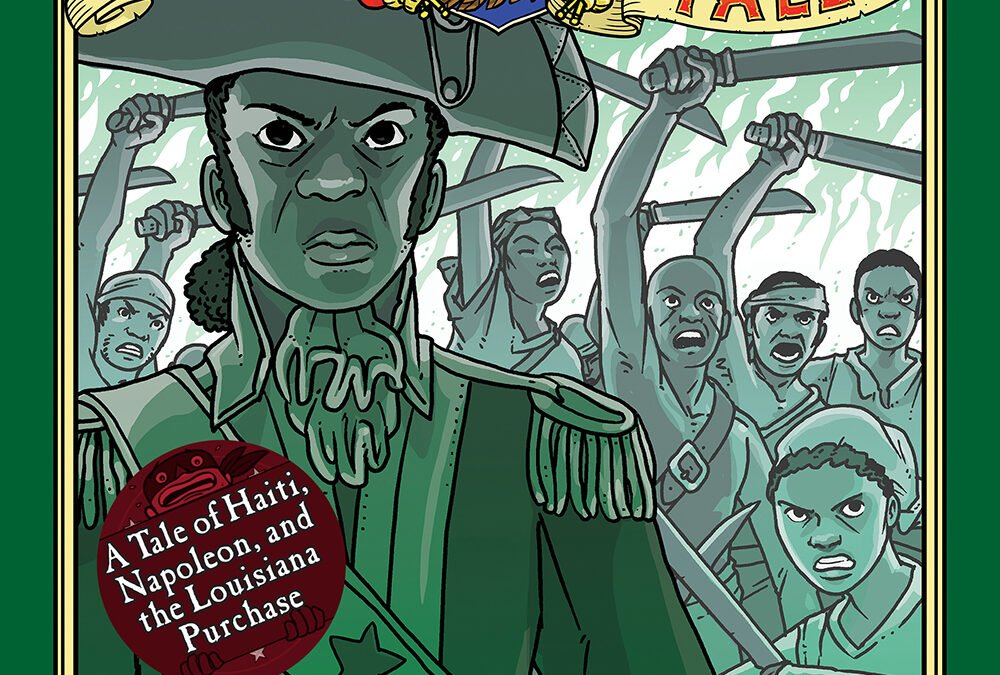
Book Review of Blades of Freedom: A Tale of Haiti, Napoleon, and the L…
Review of Blades of Freedom: A Tale of Haiti, Napoleon, and the L… by Nathan Hale
Gather round, young and old! Step up and see the hanging! At least, that’s how Nathan Hale invites us into his latest installment of the Hazardous Tales series. As I opened Blades of Freedom, I couldn’t help but feel that we were in for a wild ride—one that spins through history in a way I hadn’t quite expected. With a title that promises intrigue involving Haiti and Napoleon, I was hooked from the get-go. But did the tale deliver? Well, that’s where my journey takes a turn.
Out of all the Hazardous Tales, this installment may be its most complex. Instead of focusing on a single protagonist, Hale introduces a wheel-spinning plot device that pairs various historical figures, creating a tapestry of events—a whirlwind of heroes, villains, and even mosquitoes! Yes, I said mosquitoes. Their role, mighty yet quirky, really captures the bizarre twist of this narrative. However, while I appreciate Hale’s attempts to bring history alive, I found myself at odds with the weight of what I was reading.
This isn’t just a simple narrative of how America acquired the Louisiana Territory; it’s a convoluted journey spanning centuries, laden with heavy themes like revolution, slavery, and the brutal realities of politics. I admit, the book felt overwhelmingly dark at times. I wholeheartedly believe in presenting history honestly, without sugar-coating its horrors. However, the emotional depth of this volume made it feel heavier than past installments. It’s one thing to explore the tragic and bleak, but Blades of Freedom seemed to take it to an extreme, offering a weight that I can’t quite imagine many children being ready to bear.
Hale intertwines the French Revolution and the Haitian Revolution, leading readers down a path paved with human rights violations and moral dilemmas. The endless cycle of brutality, justified under the guise of political gain, reminded me of Victor Hugo’s Les Misérables, just without the whimsical charm suitable for younger audiences. The juxtaposition of bloodshed and the mosquito’s role as the unlikely saviors was both comical and jarring, leaving me to wonder if Hale inadvertently celebrated epidemics while advocating for justice.
Writing-wise, Hale’s pacing was relentless, often leaving this reader breathless, and not in a good way. I found myself wishing for breathing room amid the chaos, yet the narrative barreled forward, as if it were spinning its own historical wheel.
The inclusion of voodoo—an inevitable aspect of Haiti’s culture—introduced another layer of discomfort. Several scenes involving animal blood left me feeling more disturbed than entertained. And let’s talk about the ending: it felt abrupt, as if Hale hit a deadline and decided, “That’s it!” I left the reading experience feeling craving resolution that never quite materialized.
Blades of Freedom is sure to resonate with those who appreciate historical complexity and are open to exploring its darker sides. However, it demands a level of maturity that I believe might overwhelm younger readers. Maybe it’s a testament to how subjective reading experiences can be—many others have rated it highly, finding depth where I felt discomfort.
In the end, while this book wasn’t my favorite in the series, it did provoke thought and reflection on the heavier shades of history. Perhaps it’s worth a discussion in classrooms, but I would hesitate before recommending it for casual reading.
So, if you love a historical narrative that challenges your perceptions, you might enjoy Blades of Freedom. Just be prepared for a rather heavy experience!
Discover more about Blades of Freedom: A Tale of Haiti, Napoleon, and the L… on GoodReads >>






